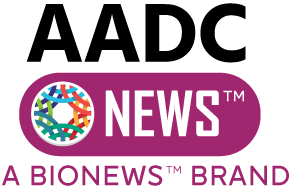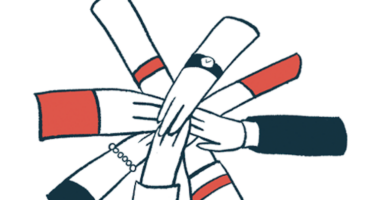New foundation seeks to boost care for undiagnosed, ultra-rare diseases
Effort to help patients who often struggle to navigate US healthcare system

Undiagnosed and ultra-rare disease patients and their family members have joined efforts with clinicians and advocacy partners to create the Undiagnosed Diseases Network Foundation (UDNF) to help improve care for people with such rare diseases, such as aromatic L-amino acid decarboxylase (AADC) deficiency.
“By centering those left behind by healthcare — especially undiagnosed patients who often struggle to navigate the healthcare system — we can develop new approaches to comprehensive patient care that benefit everyone,” Meghan Halley, PhD, president of the UDNF board of directors, said in a foundation press release.
Halley, who has a son with an undiagnosed disease, is a senior research scholar of the Center for Biomedical Ethics at Stanford University.
Foundation established by patients, families participating in UDN
The foundation has been established by patients and families participating in the Undiagnosed Diseases Network (UDN), a research study backed by the National Institutes of Health (NIH) Common Fund. Its goal is to improve the identification of undiagnosed and ultra-rare diseases by bringing together clinical and research experts across the U.S. to solve medical mysteries.
“In just 10 years, and through funding provided by the NIH Common Fund, the UDN has diagnosed 30% of the participants and identified over 50 new diseases,” the release stated.
The UDNF “will help ensure that patients have access not only to resources and community support but also to the research and clinical care they need — from the very onset of their symptoms, through their diagnostic journey and, eventually, to treatment,” said Isaac Kohane, MD, PhD, UDN’s principal investigator and chair of the biomedical informatics department at Harvard Medical School.
For people with an unnamed disease, an atypical presentation of a rare disease, or an ultra-rare disease like AADC deficiency — with only 120 cases reported worldwide — “the search for a diagnosis can take decades and involve going from doctor to doctor without answers,” the release stated.
Moreover, these patients often lack access to specialists, undergo invasive and costly tests, are delayed in getting treatment, and experience emotional distress.
The UDNF is committed to addressing health disparities faced by these patients, especially those from historically marginalized communities.
By centering those left behind by healthcare — especially undiagnosed patients who often struggle to navigate the healthcare system — we can develop new approaches to comprehensive patient care that benefit everyone.
Community efforts help secure $18M in funding for UDN
Both pediatric and adult patients will benefit from the services of the UDNF, which will maintain a close collaboration with the UDN and provide community education programs.
The efforts of this community have contributed to a congressional bill that secured $18 million in funding to the UDN for 2023.
Together with the Undiagnosed Diseases Network International and the Wilhelm Foundation, the UDNF will celebrate the second edition of the “Undiagnosed Day,” a virtual webinar that will take place on April 29.
The event will feature presentations from experts around the world, a diagnostic hackathon, and social media conversations. Additional collaborators include the Positive Exposure and the Karolinska Institute’s Undiagnosed disease program.
Amy Gray, who will oversee the UDNF as its inaugural CEO, will speak at the event about support services for undiagnosed patients. Gray has two decades of experience in rare-disease-focused nonprofits and is the former CEO of the Charcot-Marie-Tooth Association, which seeks to find a cure for Charcot-Marie-Tooth disease, a rare neurological disease.






